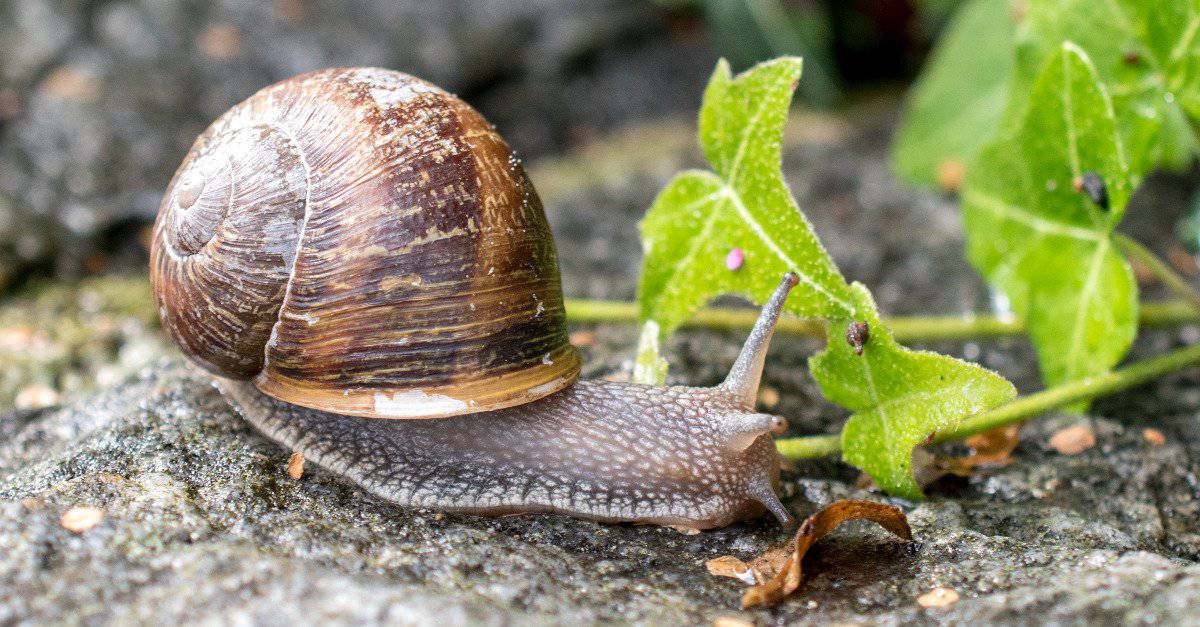Garden snails eat a variety of vegetation including fruits, vegetables, and flowers. Garden snails are common in most gardens and are best known for their slow movement and protective shells.
These herbivorous mollusks feed on a variety of vegetation, making them both a blessing and a curse for gardeners. While they can consume fruits, vegetables, and flowers, they also play an important role in helping to break down organic matter, which enriches the soil.
Garden snails are known to be attracted to lettuce, cabbage, strawberries, and other leafy greens, making them a common pest for farmers. In addition to their dietary habits, garden snails have a unique reproductive system and are also a valuable food source for many predators. To learn more about garden snails and their eating habits, read on.

Credit: a-z-animals.com
Quick Navigation
Garden Snails’ Natural Diet
Garden snails are herbivores with a wide range of natural diets. They eat different types of vegetation, including flowers, vegetables, herbs, and fruit trees. The garden snails are particularly attracted to vegetables such as lettuce, cucumber, peas, broccoli, and beans.
These vegetation have a moist and soft texture, providing the garden snails with the necessary moisture they require to survive. Moreover, garden snails are attracted to the sweet aroma and taste of fruit trees, such as citrus, apples, pears, and grapes.
Garden snails cannot resist the sweet scent of these fruits. Garden owners can minimize the damage garden snails cause by planting vegetation such as lavender, rosemary, sage, thyme, and mint, as these herbs are natural repellents that garden snails dislike.
Feeding Behavior Of Garden Snails
Garden snails are known for their feeding behavior, consuming small amounts of food frequently. They acquire essential nutrients from the leaves, flowers, and stems of plants, as well as fruits and vegetables in gardens. Snails are equipped with a radula, a ribbon-like tongue with tiny teeth that scrape off and devour bits of food.
Interestingly, they also excrete a slime trail, which they consume again to gain back its water content. Though seen as harmless, too many snails can cause damage to gardens, leading to a decrease in vegetation. However, if controlled and managed, garden snails can contribute to a healthy ecosystem.
Proteins And Carbohydrates In Garden Snails’ Diet
Garden snails have a simple diet composed of proteins and carbohydrates. Proteins are found in plant and animal sources such as decaying fruits or insects. Carbohydrates are obtained from leaves, stems, and other plant materials. Both nutrients are fundamental in facilitating growth, reproduction, and survival of garden snails.
Calcium is also necessary for a healthy shell formation, which garden snails intake through their diet. Fortunately, garden snails are not picky eaters, so they can feed on a variety of sources as long as they provide the necessary nutrients.
Providing a balanced and diverse diet is essential to keeping healthy, happy garden snails.
Vitamins And Minerals In Garden Snails’ Diet
Garden snails have a unique diet that includes vitamins and minerals essential for their health and immunity. These nutrients are sourced from their main diet of fresh vegetables, fruits, and herbs. They require specific nutrients like calcium, magnesium, and iron, which they can find in small amounts in plants.
The vitamins they consume like vitamin e plays a crucial role in the production of red blood cells essential for their survival. Zinc found in their diet enhances their immune system and helps them fight off disease-causing pathogens. It’s vital to feeding garden snails a balanced diet as it plays an essential role in their overall health, immunity, and survival.
Supplemental Foods For Garden Snails
Garden snails have a varied diet but supplementation is sometimes necessary. The best way to offer supplements is in moderation. Don’t give too much or too often. Fresh fruits and vegetables work well. Avoid anything with preservatives or added sugars.
A piece of apple, carrot, and cucumber will provide the necessary nutrients. Keep the food clean and free from harmful bacteria. Change it every day, beware of what a snail won’t eat – citrus, garlic, potato, bell pepper, and onion.
The supplements provide them with vitamins and minerals, which contribute to the snails’ growth and development.
Conclusion
If you’re a gardener and wondering ‘what do garden snails eat? ‘, this blog post has covered all the essential information you need about their diet. From fruits and vegetables to plant leaves, snails can eat a variety of foods.
It’s crucial to understand what snails like to gorge on if you want to protect your garden plants from destruction. After reading this post, you should now know what snails eat, what they don’t, and how to make your garden less attractive to them.
As you aim to get rid of these garden pests, remember that some snails are beneficial to your garden, and eliminating them may not be the best option. With the right information, you can effectively manage garden snails in a way that benefits both your plants and the snails themselves.